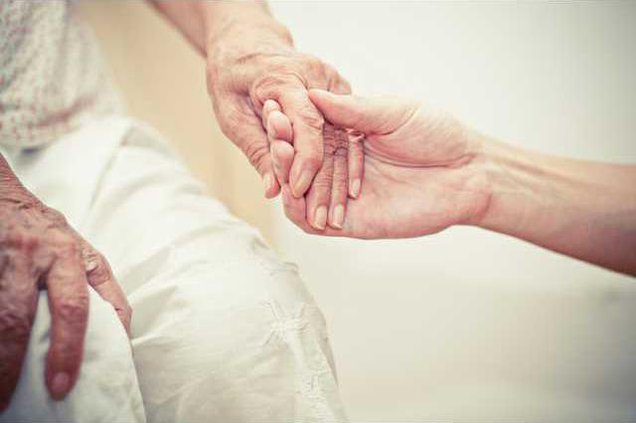Politicians, health policy leaders and advocates for the elderly gathered in Washington, D.C., on Monday for the White House Conference on Aging.
Planned to coincide with the 50th anniversary of Medicare, Medicaid and the Older Americans Act, the event focused on how to best provide social, medical and financial support to older Americans, with sessions on healthy aging, long-term care services, elder justice and retirement security.
According to the Population Reference Bureau, 40 million people in the U.S. are currently 65 or older. That number is expected to rise to 89 million by 2050, a situation that presents unique challenges to health care providers, policymakers and families.
"We need to make sure our communities are preparing for an aging society in positive ways and viewing our changing demographics as an opportunity rather than a burden," wrote Valerie Jarrett, senior adviser and assistant to the president for intergovernmental affairs and public engagement, for The White House Blog.
The conference focused on supporting older Americans through government policies, and it also highlighted the importance of keeping the elderly engaged with society, whether through outings with friends, family members or community groups.
Here are three ways to spend more time with the older people in your life:
1. See a movie
Although the elderly might not be up for the latest Terminator or Magic Mike installment, other films hold special significance for older viewers. For example, Inside Out explores the complexity of emotions, leading people to reflect on the poignant moments that make up a full life, as The Washington Post noted.
2. Ask them about their life
One of the easiest ways to build a stronger connection with the elderly is to listen to stories about their life. People who are 65 years or older today were alive to witness the Civil Rights Movement, the invention of the Internet and even Beatlemania they have plenty of stories to tell.
Conference on Aging organizers have encouraged people to interview older adults about their experiences using the StoryCorps app. Each conversation submitted through the app is archived in the Library of Congress, and files can also be shared on social media with the conferences hashtag, #WHCOA.
3. Show them your newest gadget
At a time when Apple's latest product grabs as many headlines as a presidential speech, being uncomfortable with technology can be isolating. It can even be dangerous, because more and more health information has been moved online, creating a "digital divide in health care," as the University of Michigan Health System reported last year.
Younger people can equip the elderly with the tools they need to succeed in a digital age, and then keep in touch with them via email, Facebook and even Skype.
Planned to coincide with the 50th anniversary of Medicare, Medicaid and the Older Americans Act, the event focused on how to best provide social, medical and financial support to older Americans, with sessions on healthy aging, long-term care services, elder justice and retirement security.
According to the Population Reference Bureau, 40 million people in the U.S. are currently 65 or older. That number is expected to rise to 89 million by 2050, a situation that presents unique challenges to health care providers, policymakers and families.
"We need to make sure our communities are preparing for an aging society in positive ways and viewing our changing demographics as an opportunity rather than a burden," wrote Valerie Jarrett, senior adviser and assistant to the president for intergovernmental affairs and public engagement, for The White House Blog.
The conference focused on supporting older Americans through government policies, and it also highlighted the importance of keeping the elderly engaged with society, whether through outings with friends, family members or community groups.
Here are three ways to spend more time with the older people in your life:
1. See a movie
Although the elderly might not be up for the latest Terminator or Magic Mike installment, other films hold special significance for older viewers. For example, Inside Out explores the complexity of emotions, leading people to reflect on the poignant moments that make up a full life, as The Washington Post noted.
2. Ask them about their life
One of the easiest ways to build a stronger connection with the elderly is to listen to stories about their life. People who are 65 years or older today were alive to witness the Civil Rights Movement, the invention of the Internet and even Beatlemania they have plenty of stories to tell.
Conference on Aging organizers have encouraged people to interview older adults about their experiences using the StoryCorps app. Each conversation submitted through the app is archived in the Library of Congress, and files can also be shared on social media with the conferences hashtag, #WHCOA.
3. Show them your newest gadget
At a time when Apple's latest product grabs as many headlines as a presidential speech, being uncomfortable with technology can be isolating. It can even be dangerous, because more and more health information has been moved online, creating a "digital divide in health care," as the University of Michigan Health System reported last year.
Younger people can equip the elderly with the tools they need to succeed in a digital age, and then keep in touch with them via email, Facebook and even Skype.








